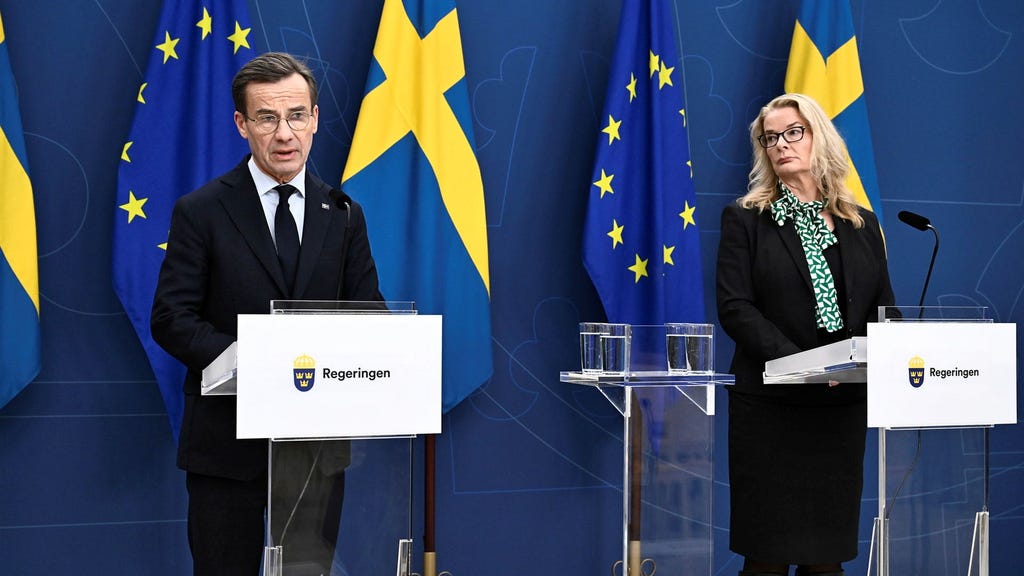The Swedish government, led by Prime Minister Ulf Kristersson, has announced the commissioning of an inquiry to explore the implementation of mandatory language preschools for children with insufficient Swedish language skills. This initiative stems from the concern that a significant number of children with foreign-born parents do not speak Swedish at home, and often reside in segregated areas where proficient Swedish speakers are scarce. This lack of exposure to the Swedish language hinders their integration and future educational prospects. The government believes that early intervention through mandatory language preschools can address this issue and provide these children with a solid foundation in Swedish. This move draws inspiration from Denmark, which introduced similar language preschools in 2019 with reportedly positive outcomes. While Sweden aims to learn from the Danish experience, the government emphasizes that the Swedish model will not necessarily be a direct replica.
The proposed language preschool program targets children who demonstrate significant deficiencies in Swedish due to insufficient exposure at home. According to Minister for Schools Lotta Edholm, the program is envisioned to commence in the autumn term of the year the child turns three. The inquiry tasked with developing the framework for these language preschools will investigate various critical aspects, including attendance requirements and potential sanctions for parents who fail to ensure their children’s participation. This focus on mandatory attendance underscores the government’s commitment to ensuring that children receive the necessary language support. The inquiry will also explore mechanisms for identifying children requiring language support, considering factors like home language usage and current Swedish proficiency.
Furthermore, the inquiry will address crucial aspects of staffing and preschool structure. This includes establishing national language proficiency requirements for preschool personnel, ensuring that teachers possess the necessary skills to effectively instruct children in Swedish. Additionally, regulations will be developed to control group sizes and staff-to-child ratios in these language preschools. By setting a maximum number of children per full-time staff member, the government aims to create an optimal learning environment where each child receives adequate individual attention and support. These measures demonstrate the government’s commitment to providing high-quality language education in these preschools.
The impetus behind this initiative lies in the government’s recognition of the importance of early language acquisition for successful integration and future academic achievement. Proficiency in Swedish is deemed essential for children to fully participate in Swedish society, access educational opportunities, and contribute to the country’s future. By providing targeted language support at an early age, the government seeks to equip these children with the linguistic tools they need to succeed. The proposed language preschool program aims to bridge the language gap for children from non-Swedish speaking homes, ensuring they are not disadvantaged due to their linguistic background.
The Danish model, which serves as inspiration for the Swedish initiative, has shown promising results in enhancing language proficiency among children with limited exposure to Danish at home. While the Swedish model will likely incorporate learnings from the Danish experience, it will be adapted to the specific context of Swedish society and the needs of children in Sweden. The government emphasizes the importance of creating a program tailored to the unique circumstances of Sweden’s diverse communities. The inquiry is expected to consider various factors, such as the specific language challenges faced by children in different regions of Sweden and the availability of resources to support the program’s implementation.
The inquiry into mandatory language preschools is set to present its findings and recommendations by December 18, 2025. This timeframe allows for a thorough investigation of the various aspects involved in establishing and implementing such a program. The inquiry is expected to consult with experts in early childhood education, language acquisition, and social integration to gather diverse perspectives and ensure a comprehensive approach. The government anticipates that the findings of this inquiry will provide valuable insights for developing an effective and sustainable language preschool program that addresses the needs of children with limited Swedish proficiency. This initiative reflects the government’s commitment to promoting linguistic integration and ensuring equal opportunities for all children in Sweden.














